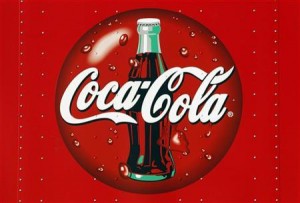 Six Nigerian human rights, non-governmental and civil society organizations have sent an open letter to the Chairman of the Board and Chief Executive Officer of The Coca-Cola Company, Mr Muhtar Kent, over alleged consumer rights abuses by Coca-Cola Nigeria Limited.
Six Nigerian human rights, non-governmental and civil society organizations have sent an open letter to the Chairman of the Board and Chief Executive Officer of The Coca-Cola Company, Mr Muhtar Kent, over alleged consumer rights abuses by Coca-Cola Nigeria Limited.In the letter dated December 9, 2014, and signed on behalf of the groups by SERAP Executive Director, Adetokunbo Mumuni, the groups expressed “serious concerns about the continuing refusal by Coca-Cola Nigeria Limited to comply with the recommendations by the Consumer Protection Council of Nigeria (CPC),” and urged Kent to use his good offices and leadership “to prevail on the Company to respect due process and international standards in its operations and manufacturing process.”
According to the groups, “The failure by Coca-Cola Nigeria Limited to effectively comply with Nigerian laws and regulations is illustrated by the Company’s refusal to subject their manufacturing process to inspection by appropriate authorities, in particular the CPC; failure to establish a Shelf Life Policy for their products in the country which clearly would help to facilitate the removal of expired products from the market; and failure to address health and safety implications of its operations and practices.”
Other instances listed by the groups are: “failure to put in place appropriate grievance resolution policy that can address compensation for injuries, or compensation in instances where replacement will be inadequate; failure to review the Company’s supply chain management to include retailers in order to minimise the distribution of defective, non-conforming or expired products; and failure to bring the Company’s traceability policy in line with international standards by only relying on information as to the place of purchase to trace their products.”
The groups also said that, “the lack of due diligence clearly has implications for the enjoyment of consumer and human rights. The lack of accountability and impunity by Coca-Cola Nigeria Limited is not only unethical but also inconsistent with international standard
 s such as the Guiding Principles on Business and Human Rights: Implementing the United Nations Protect, Respect and Remedy Framework.
s such as the Guiding Principles on Business and Human Rights: Implementing the United Nations Protect, Respect and Remedy Framework.“The Guiding Principles were endorsed by the UN Human Rights Council in June 2011. The Principles require that Coca-Cola Nigeria Limited show genuine commitment to product safety and quality in Nigeria, and to respect and accept the recommendations of appropriate authorities on the compliance of its plants and operations with international standards, as the parent company does in developed economies,” the groups added.
According to the groups, “Coca-Cola Nigeria Limited is also required to ensure that its activities do not directly or indirectly cause consumer rights abuses, and to provide effective remedies to victims in cases of abuses of consumer rights. The Company must seek to prevent or mitigate adverse consumer rights impacts that are directly linked to their operations, products or services by their business relationships, even if they have not contributed to those impacts.”
“The responsibility of Coca-Cola Nigeria Limited to respect consumer rights is a global standard of expected conduct for all business enterprises wherever they operate. It exists over and above compliance with national laws and regulations protecting human rights. We contend that addressing adverse consumer rights impacts in its operations and practices requires taking adequate measures for their prevention, mitigation and, where appropriate, remediation,” the groups also argued.
No comments:
Post a Comment